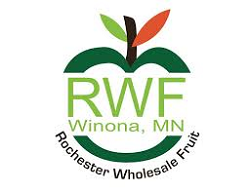Some of today’s management gurus may believe they have created or named the most-used business terminology. Specifically, one we hear all the time: time management.
In fact, according to calendar.com, in 1911 one Frederick Winslow Taylor published “The Principles of Scientific Management,” which analyzed the best way for workers to perform a job. Following this were decades of numerous enhanced writings and theories on the same subject.
So it’s not exactly a new idea.
I often think about this topic whenever I see produce managers or their clerks tied up with lesser-skilled tasks that ought to be delegated elsewhere.
For example, as much of a sanitation proponent as I was when overseeing a produce department, it never made sense to pay journeyman wages to have crewmembers scrub cases, floors or anything else if a lesser-paid crew was available.
Many chains now as a matter of routine employ teams of such lesser skillset classifications. Use them.
The late Lee Iacocca described a much loftier example in his 1986 self-titled autobiography, when he defended why he directed that his Chrysler executives travel in private jets instead of on commercial flights. He said their time was far better spent working instead of sitting around in airport concourses.
Back to the humble grocery store. I remember that when facing any large-volume period, from a full-bore new store or remodel — or simply approaching a busy weekend — I arranged for one or two courtesy clerks to be assigned to produce for each day. Their sole purpose was to do all the jobs that didn’t require stocking, to free the produce manager and clerks to (what else?) maintain stock conditions.
The non-stocking tasks entailed quite the list: transferring all empty boxes and other debris to the compactor, emptying trash, mopping up spills, stacking empty pallets, wiping down tables, wet rack chrome, scale pans and mirrors. The same courtesy clerks stayed busy filling bag dispensers, twist-ties, answering phones, sweeping the sales floor. And so much more.
Of course, these stopgap-solution courtesy clerks couldn’t be just anyone.
Any retail store has its mix. I’d select two hustlers that I had observed, or who had come recommended by the store manager. They proved to be easily trained self-starters who would hustle and not pal around too much with one another. In fact, they’d be the ones we’d have our eye on for a possible future transfer and promotion into the produce department. And we’d let them know as much too.
None of this meant that any of the existing produce clerks were above tossing a load of boxes or cleaning up a mess. In fact, everyone knew that if a task needed doing, then do it. But from a management perspective you must assign the right jobs to the right people, large or small. In the produce aisle, when done so efficiently, it translates into maximum sales, minimal shrink, and a safe, clean and profitable operation.
Armand Lobato works for the Idaho Potato Commission. His 40 years’ experience in the produce business span a range of foodservice and retail positions.














